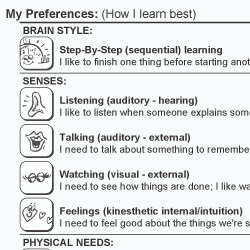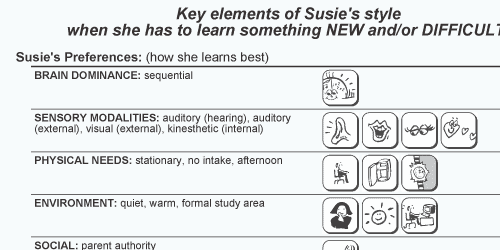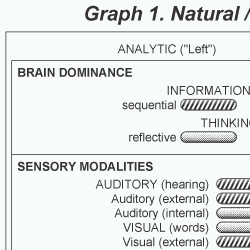"Study after study suggests that handwriting is important for brain development and cognition — helping kids hone fine motor skills and learn to express and generate ideas," says Gwendolyn Bounds in The Wall Street Journal.
Virginia Berninger, a psychologist from the University of Wisconsin discovered that students produced more ideas when composing essays in longhand. Her research showed that the sequential finger movements required to write by hand activate brain regions involved with thought, language, and short-term memory.
Cursive writing in particular develops the small muscles in the hand and teaches spatial skills as we automatically leave spaces between words while writing in cursive.
To some children, handwriting skills will come more naturally than to others. It all depends on their learning style: how visual and tactile they are, whether they have a preference for mobility, their motivation and perseverance.
What is your child's learning style and does it make handwriting a messy business?




